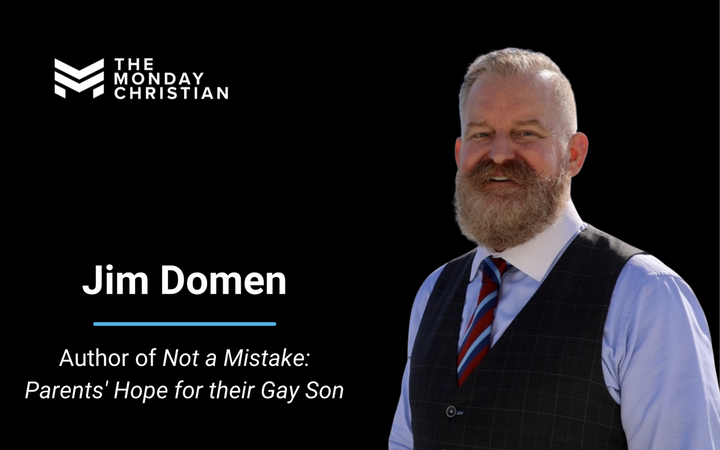Six Reasons I Might Have Given Up On God As a Teen…But I’m Glad I Didn’t.

Just this past week I learned that former Christian author, Joshua Harris, has decided to walk away from the faith he once preached. Reading and listening to his story was disappointing and yet challenging.
Honest reality: Each of us know people who grew up with us who want very little to do with God today. They attended the same churches, went to the same camps we did, and maybe grew up in our same families. Yet, for one reason or another, they want nothing to do with him. This saddens me. Not because I particularly care whether others adopt my personal framework of belief. It just saddens me because they are missing out on a relationship with a God who loves them so much and cares about them so deeply.
A couple years ago, I listened to a sermon series titled “Who Needs God?” by author and pastor of one of America’s largest churches, Andy Stanley. While I did have some significant problems with several of the implications of a few of his messages (John Piper graciously outlines some of these), overall I found his series very helpful and thought provoking (which is probably more than I can say for more than one sermon I have preached!).
In particular, I found his message “Who Needs God: Gods of the No Testament” very interesting. In a nutshell, Stanley’s premise is that some people have walked away from a picture of god that in no way represents the God of Christianity. In this point, I entirely agree.
Adapting and tweaking some of Stanley’s thoughts, here are 6 “gods of the Bible” that perhaps you grew up believing in that I would suggest do not even exist.
1. Baby god
I agree with Stanley that one key reason many adults have rejected God in their later years is because they asked adult questions to child based teachings of Christ. Now, this is not to say that what Christians were taught in Sunday Schools was wrong. It is just that the arguments for God that we heard at age 9 are unsatisfactory and not designed to withstand the rigorous challenges of a secular Ph.D professor with an atheistic worldview. Yet, time and time again I hear non-believers compare Grade 6 arguments for the existence of God against popular new atheist authors such as Dawkins, Hitchens, or Harris (Sometimes Christians can do this same thing in reverse which I am convinced does us few favors). As a result, when they think of serving God today, they almost assume they will have to reject science and all reasonable logic. Their picture of belief in God is still very infant in nature. (Note: This is why I am such a supporter of Christian Worldview Education)
2. Bodyguard god
Some grew up with a view that said God will always protect us from all pain and harm. Then life happens. The career field they thought was going to be a reality does not pan out. Friends and family members they prayed for lose their lives to cancer. Parents separate. Their spouse is a jerk. And suddenly, because they always believed that their God would insulate them from all dangers, they find themselves rejecting him. They take one look at all of the pain and suffering in this world and cannot reconcile the disconnect they have between their bodyguard god perception and the horrible realities that they see around them.
3. Genie god
Similar to a bodyguard god, others grew up with the belief structure that God is there to do our bidding and be our personal genie. They wrongly understand, “Ask and receive,” and grow frustrated in praying to a God who never seems to answer their prayers and do as they wish. In the words of Mark Batterson, they have an inverted view of the gospel. They have invited Jesus to follow them rather than making the decision to follow Jesus. They asked God to do X. He didn’t. Thus, he must not care or even be real.
4. Guilt god
From the title, you may be already starting to shake your head up and down at this one. People who grow up with this understanding of God might have grown up in a rather “legalistic” upbringing. The motivation to do good was not out of genuine love for God, but fear of what might happen if his commands were not obeyed. After a while, they just became tired of following someone they assumed always carried a hammer and awaited their first wrong move.
5. Boyfriend god.
More recently, this concept of God is gaining in popularity. In fact, in many modern worship songs today, the lyrics are written in such as way that the word “Jesus” could easily be substituted with boyfriend (Not trying to knock modern worship. Simply making an observation). One of many problems with the boyfriend god model is that it assumes our relationship with him should be just as we would treat someone we were dating. It largely ignores the characteristics of God such as his holiness, justice, wrath etc… and assumes Jesus is some happy go lucky deity just waiting to give you goosebumps every time you enter his presence. This might hold up well for people who surround themselves with highly motivational teachers and jaw dropping worship bands. But when the real world hits and the emotional goosebumps are gone, their view of God begins to crumble and they might feel like a bitter “ex-lover.”
6. Gap god
Unfortunately, the gap god is still very much alive and well in Christian circles. It is the god that fills in anything that a Christian cannot explain. Find the closest parking spot at Walmart? Must have been God! How could an entire world be destroyed by a global flood? Easy, God did it. Why would God come to this earth to redeem humanity? Simple, that’s just want he wanted to do! While there are many things in this life that are unexplainable and known only by God, there are also a number of questions that can be answered with great factual answers. As Andy Stanley states, too often Christians have provided faith based answers to fact based questions. Don’t get me wrong. I always want to give God the credit because it is because of him that we can even breathe. But in our effort to do this, I think it is important that we do not wrongfully insert his name as a means of explaining situations we simply cannot or do not wish to understand. Doing so causes thinking people around us to question our logic.
When I think about it, there have been various points in my life when I have struggled with each of these misconceptions of God. Perhaps you might have as well. The question then becomes, what will we do to overcome these false misconceptions? Are we willing to allow them to be excuses that would prevent us from fully enjoying God at a higher level or are we willing to address them intelligently?
In my most recent book What’s the Point?, I write about my experience with God as a kid. One of the greatest challenges I had was that I tended to view him through the lens of other people. I looked at God through pastors, parents, and role models in my life. But while all of these are good, there were times when each of them would disappoint. However, when I was about 14 years of age, I remember making the decision to personally discover God for myself. I wanted to view God for who he was, not through what someone else portrayed him to be. That decision completely changed my life. When we rid ourselves of the wrong perceptions we have had about God, then we can begin to embrace him for who he truly is. This is exciting!
How do you view God today? Have you struggled in one or more of these areas? Feel free to leave a comment below. I would love to hear your thoughts!




Comments ()